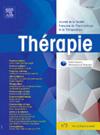Translation of the REMEDI[e]S (Review of potentially inappropriate MEDIcation pr[e]scribing in Seniors) explicit criteria into seminatural language for use in prescription support systems: A multidisciplinary consensus
IF 1.8
4区 医学
Q3 PHARMACOLOGY & PHARMACY
引用次数: 0
Abstract
Background
By recovering data in an ordered manner and at the right time, clinical decision support systems (CDSSs) are designed to help healthcare professionals make decisions that improve patient care.
Objectives
The aim of the present study was to translate the REMEDI[e]s tool's explicit criteria, France's first reference list of potentially inappropriate drugs for the elderly, into seminatural language, in order to implement these criteria as alert rules and then enable their computer coding in a CDSS.
Methods
This work was carried out at Lille University Hospital by a team of clinical pharmacists with expertise in the use of pharmaceutical decision support systems, in collaboration with the authors of the REMEDI[e]s tool. A total of 3 multi-professional consensus meetings were required to discuss the construction of each rule in seminatural language and the coding choices.
Results
All REMEDIES criteria (n = 104) were translated into seminatural language. This study is the first to have translated the 104 REMEDI[e]s explicit criteria into seminatural language.
Conclusions
One of the study's strengths relates to the close collaboration between the authors of the REMEDI[e]s tool and experts in CDSS programming rules; this ensured the exactitude of the seminatural language translations and limited (mis)interpretations.
将 REMEDI[e]S(审查老年人潜在的不当医疗行为)的明确标准翻译成半自然语言,用于处方支持系统:多学科共识。
背景:临床决策支持系统(CDSS)以有序的方式在适当的时间恢复数据,旨在帮助医疗保健专业人员做出改善患者护理的决策:本研究的目的是将REMEDI[e]s工具的明确标准--法国第一份老年人潜在不适当药物参考清单--翻译成半自然语言,以便将这些标准作为警报规则实施,然后将其编码到CDSS中:这项工作由里尔大学医院的一个临床药剂师团队与 REMEDI[e]s 工具的作者合作完成,该团队拥有使用药物决策支持系统的专业知识。共召开了 3 次多专业共识会议,讨论如何用半自然语言构建每条规则以及编码选择:所有 REMEDIES 标准(n=104)均已翻译成半自然语言。本研究是首次将104条REMEDI[e]s明确标准翻译成半自然语言:本研究的优势之一在于 REMEDI[e]s 工具的作者与 CDSS 编程规则专家之间的密切合作;这确保了半自然语言翻译的准确性和有限的(错误)解释。
本文章由计算机程序翻译,如有差异,请以英文原文为准。
求助全文
约1分钟内获得全文
求助全文
来源期刊

Therapie
医学-药学
CiteScore
3.50
自引率
7.70%
发文量
132
审稿时长
57 days
期刊介绍:
Thérapie is a peer-reviewed journal devoted to Clinical Pharmacology, Therapeutics, Pharmacokinetics, Pharmacovigilance, Addictovigilance, Social Pharmacology, Pharmacoepidemiology, Pharmacoeconomics and Evidence-Based-Medicine. Thérapie publishes in French or in English original articles, general reviews, letters to the editor reporting original findings, correspondence relating to articles or letters published in the Journal, short articles, editorials on up-to-date topics, Pharmacovigilance or Addictovigilance reports that follow the French "guidelines" concerning good practice in pharmacovigilance publications. The journal also publishes thematic issues on topical subject.
The journal is indexed in the main international data bases and notably in: Biosis Previews/Biological Abstracts, Embase/Excerpta Medica, Medline/Index Medicus, Science Citation Index.
 求助内容:
求助内容: 应助结果提醒方式:
应助结果提醒方式:


